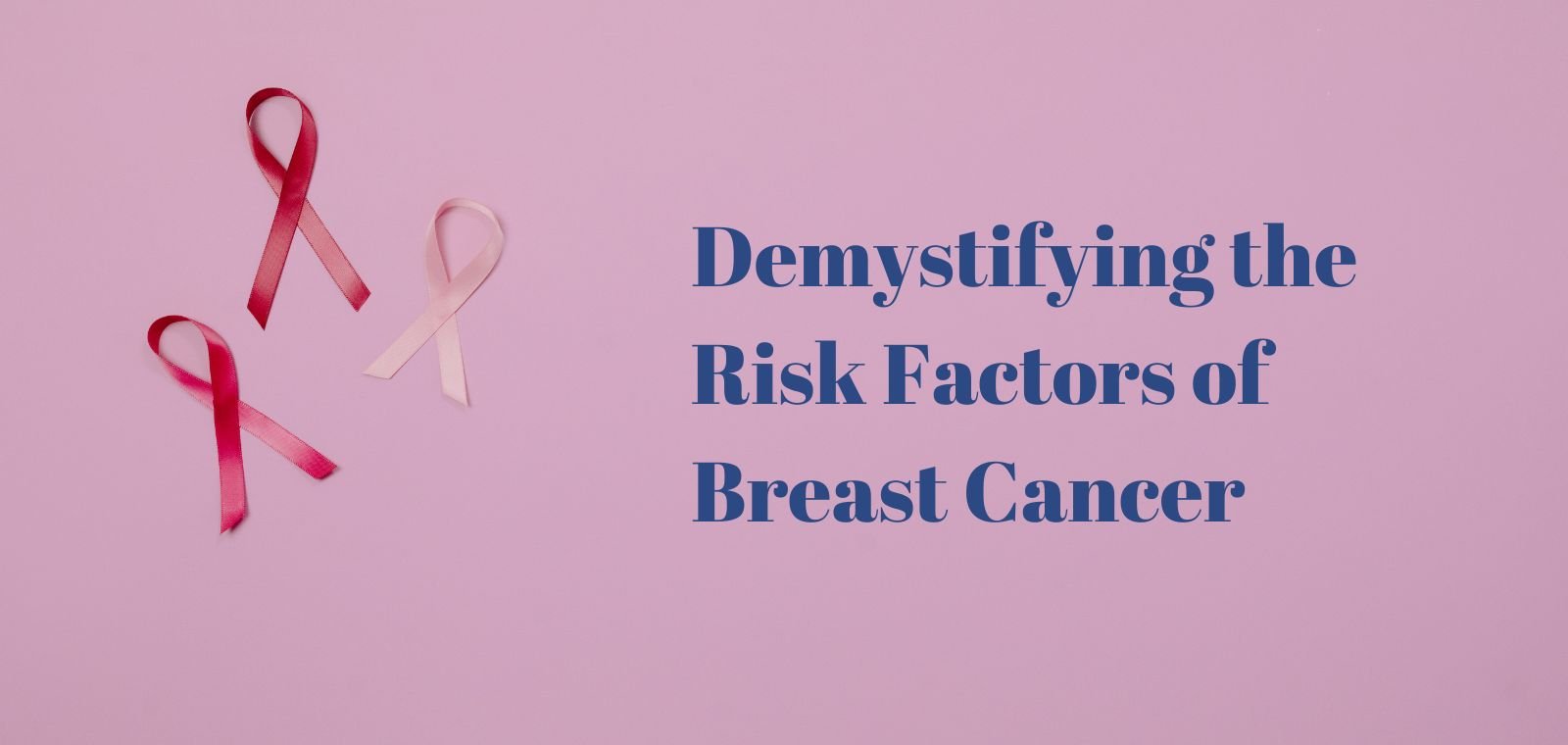
Hello, I’m Dr. Saadvik Raghuram Y, a practicing oncologist. Today, I want to talk about an important topic that affects millions of women worldwide – breast cancer. Understanding the Risk Factors of Breast Cancer can help in early detection and prevention.
What is Breast Cancer?
Breast cancer is a disease in which cells in the breast grow out of control. It can occur in both men and women, but it’s far more common in women.
Risk Factors of Breast Cancer
While the exact cause of breast cancer remains unclear, certain risk factors are linked to the disease:
1. Age: The risk of breast cancer increases with age. Most breast cancers are diagnosed after age 50.
2. Genetic Mutations: Women with certain genetic mutations, including changes to the BRCA1 and BRCA2 genes, have a higher risk of developing breast and ovarian cancer.
3. Reproductive History: Early menstruation (before age 12) or late menopause (after age 55) can increase your risk for breast cancer.
4. Dense Breast Tissue: Dense breast tissue can increase your risk for breast cancer and make lumps harder to detect.
5. Personal or Family History of Breast Cancer: If you’ve had breast cancer in one breast, you have an increased risk of developing cancer in the other breast. Your risk also increases if immediate family members have had breast cancer.
6. Certain Breast Changes: Some benign (or non-cancerous) breast conditions may increase your risk of getting breast cancer.
7. Radiation Exposure: Women who had radiation therapy to the chest or breasts (like for treatment of Hodgkin’s lymphoma) before age 30 have a higher risk of getting breast cancer later in life.
8. Hormone Treatments: Taking hormone replacement therapy (HRT) medications that include both progesterone and estrogen can increase the risk.
9. Alcohol Consumption: Studies have shown that a woman’s risk for breast cancer increases with the more alcohol she drinks.
10. Obesity: Being overweight or obese increases the risk of breast cancer.
Conclusion:
While these risk factors increase the likelihood of getting breast cancer, they don’t guarantee it will occur. Regular check-ups and mammograms are vital for early detection. If you have a high risk, talk to your doctor about what you can do to lower your risk.
Remember, early detection saves lives.
Bone Cancer Awareness Month: The Latest Research, Early Detection & Expert Care …
When people talk about cancer in India, the focus is mostly on …
Understanding the Risk If you’re a young woman diagnosed with breast cancer …
In today’s fast-paced world, many women delay pregnancy or experience weight gain …
Each year, over 300,000 women around the world are diagnosed with ovarian …
Cancer care in 2025 is not what it was even five years …

